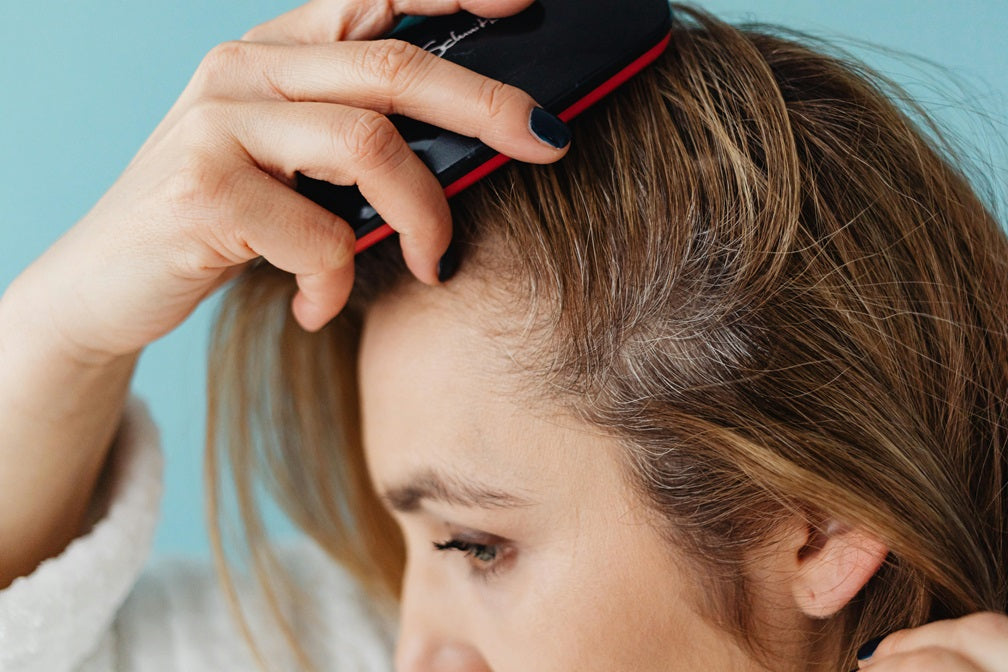For many, sebum—the natural oil produced by the scalp—has earned a bad reputation. It’s often blamed for oily hair, dandruff, and other scalp issues, leading people to wage war against it with harsh shampoos and rigorous cleansing routines. The prevailing belief is that a squeaky-clean scalp, stripped of oil, is the ultimate solution. But this approach may be causing more harm than good. Let’s uncover the truth about sebum and why it’s actually your scalp’s best friend, not its enemy.
The Problem with Over-Cleansing
When people encounter oily hair or dandruff, their first instinct is to reach for products that promise to "deep clean" the scalp. These shampoos often contain harsh chemicals designed to strip away every trace of oil. While they may offer temporary relief, the body’s natural response to this harsh treatment can exacerbate the problem.
Ayurveda explains this through the principle of dosha balance. When the scalp is stripped of its natural oils, it becomes excessively dry, disrupting the Kapha dosha (the dosha associated with lubrication and nutrition). The body interprets this dryness as a signal to produce even more sebum, leading to an overcompensation cycle. The result? Oily scalp issues and hair problems that seem impossible to resolve.
Sebum: Your Scalp’s Natural Nourisher
Contrary to popular belief, sebum isn’t a villain. Ayurveda reminds us of a profound truth: “If Bhagwan (God, Nature) has given you something, it is a friend.” Sebum is no exception to this evolutionary truth. This natural oil serves several vital purposes:
- Moisturization: Sebum prevents the scalp from drying out, keeping the hair and scalp hydrated.
- Protection: It creates a natural barrier against environmental pollutants and harmful microorganisms.
- Nourishment: Sebum acts as a natural nourisher, adding shine and softness to hair while maintaining its elasticity.
When managed correctly, sebum is essential for healthy, shiny hair and a balanced scalp.
The Role of Dosha Balance
Ayurveda emphasizes the importance of balance in all aspects of life, including hair and scalp health. By understanding your individual dosha (Vata, Pitta, or Kapha), you can tailor your hair care routine to restore natural rhythms and ensure your scalp remains healthy. The key is not to fight against your body’s natural processes but to work with them.
For instance:
- Avoid harsh shampoos that strip natural oils.
- Incorporate nourishing oils like coconut oil to support your scalp’s health.
- Use herbal, sulfate-free cleansers that cleanse gently without disrupting your doshas.
Rethink Your Relationship with Sebum
It’s time to change the narrative. Sebum isn’t the enemy of healthy hair—it’s the hero. A scalp rich in natural oils, when balanced, supports vibrant, glossy hair and a healthy ecosystem for hair growth. The next time you’re tempted to over-cleanse your scalp, remember this: your natural oils are a gift, not a burden.
So, repeat after me: Sebum is a hero, not a villain! Treat your scalp with care, embrace its natural rhythms, and let Ayurveda guide you toward true balance and beauty.













